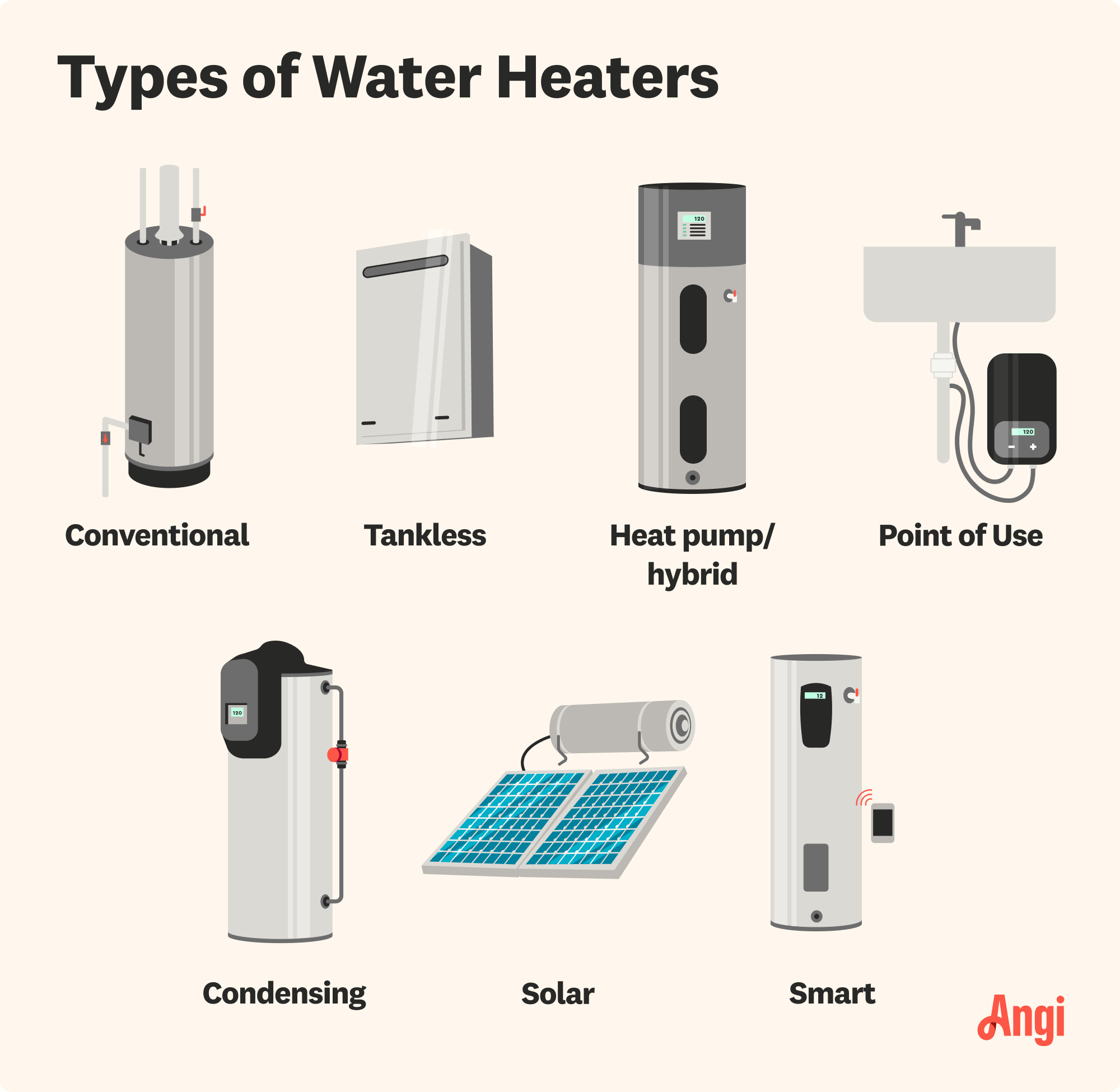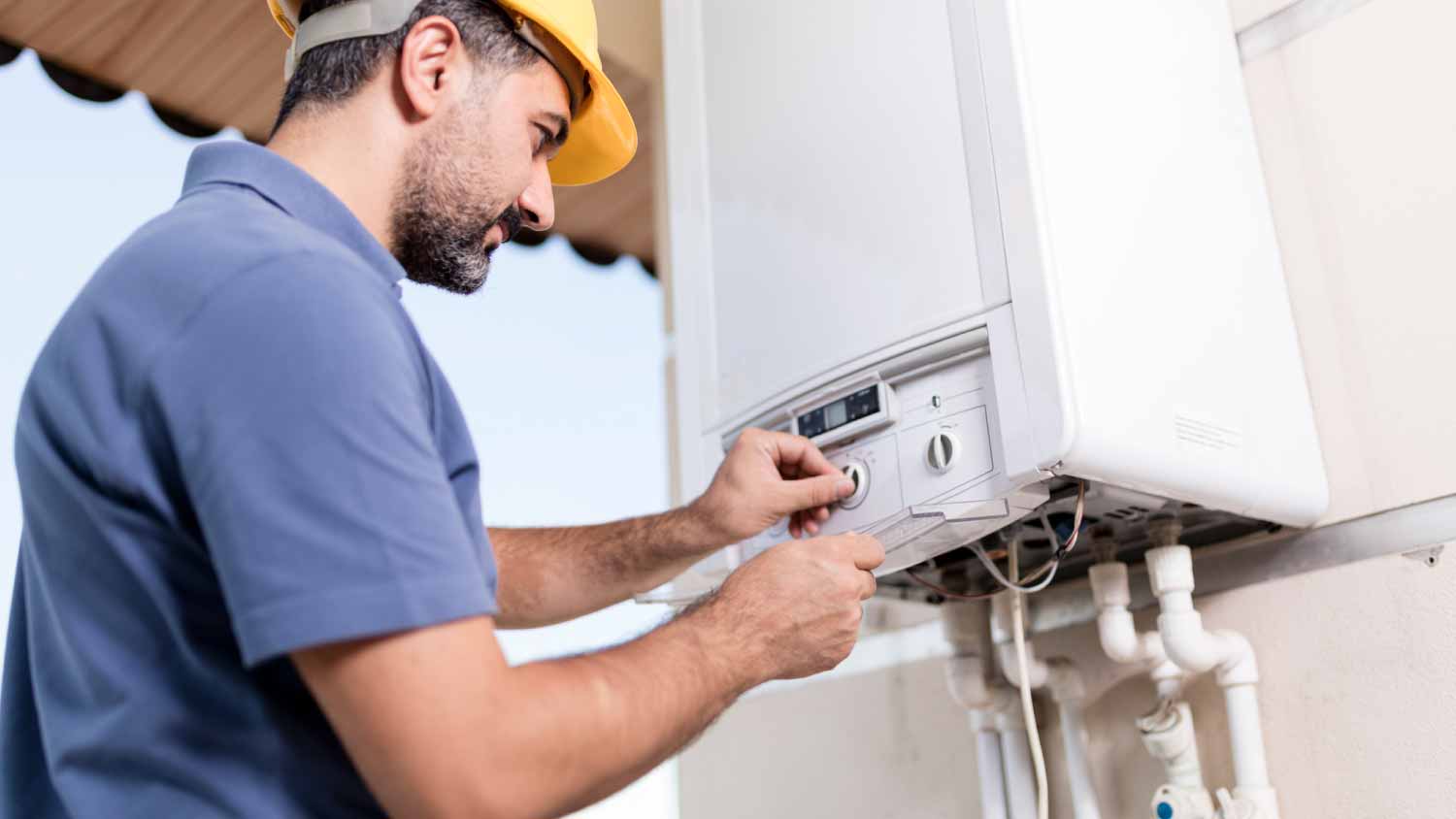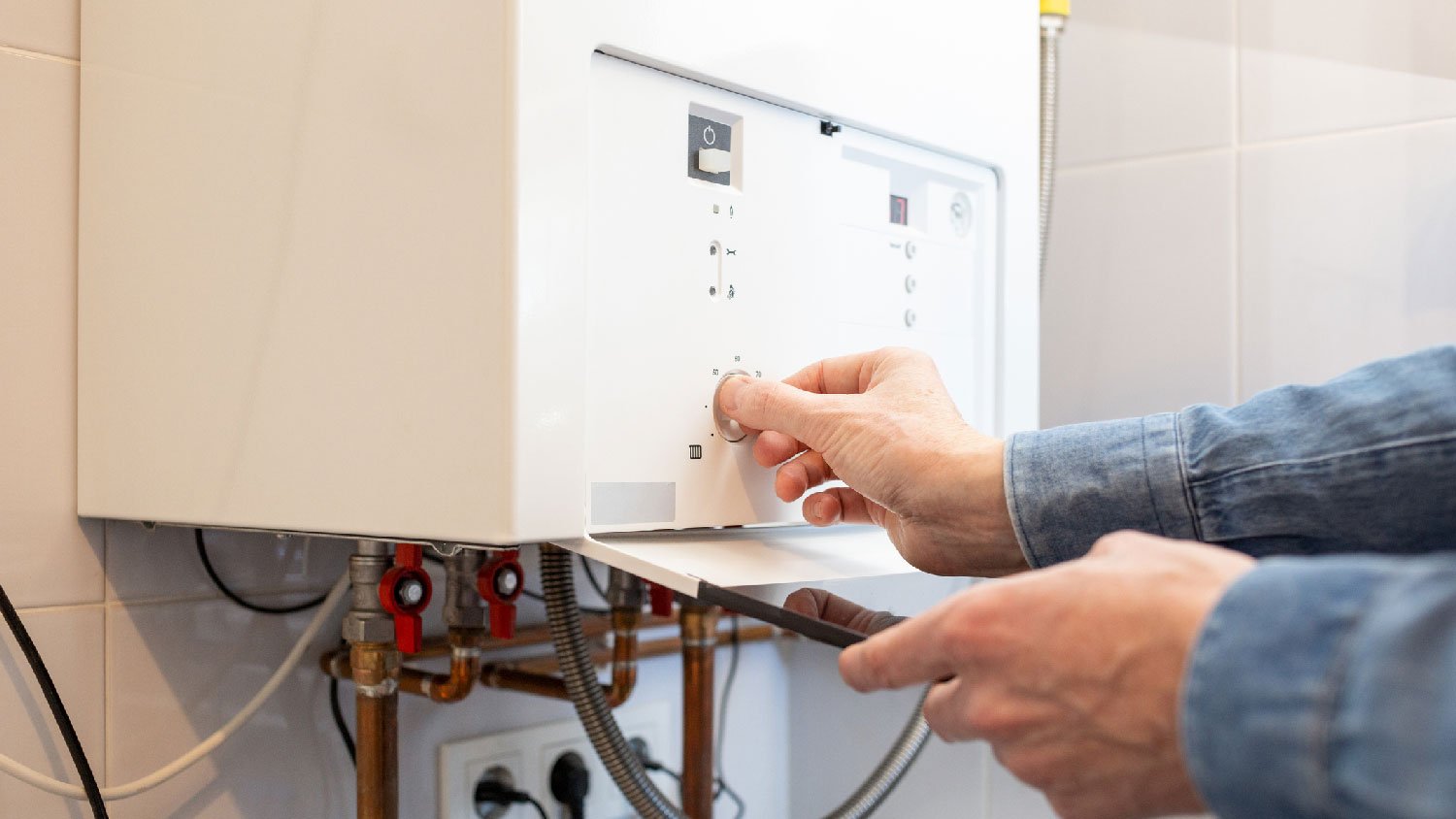7 Types of Water Heaters and How to Select the Right One for Your Home
You’ll never take a hot shower for granted again when you choose a new water heater


Unless your water heater has failed—leading to unpleasant, chilly showers—you may never have given the types of water heaters much thought. But if it’s time for an upgrade, there are many options on the market today to choose from. The best one for you will depend on a few factors, including the size of your household and budget. Let’s dive into all the types of water heaters available.

1. Conventional Storage Tank Water Heater

The conventional storage tank water heater is a popular option for homeowners, and it can be found in many homes, both old and new. Conventional water heaters have an insulated tank that holds and heats the water. The smaller the tank, the less hot water is available for use at any time.
| Pros | Cons |
|---|---|
| Multiple sizes available | Takes up space |
| Lower upfront cost | Higher energy costs |
| Easy maintenance | They may leak |
2. Tankless Water Heater

A tankless water heater is a great option for smaller homes that lack the space needed for a traditional water heater. An additional benefit of a tankless water heater is its energy efficiency. In fact, they can be up to 34% more efficient than a conventional tank-style water heater, according to the Department of Energy. The trade off is that they're more expensive—both in terms of outright purchase and any water heater repair costs down the road.
| Pros | Cons |
|---|---|
| Provides immediate hot water | High upfront cost |
| Longer lifespan | Higher maintenance costs |
Best for:
Homes in cold climates
Homeowners who want to reduce their energy use
3. Heat Pump

Hybrid water heaters, also known as heat pumps, have storage tanks like conventional water heaters and the energy efficiency of tankless models. A hybrid water heater unit costs between $1,200 to $3,500, which is about 30% to 40% more than a traditional water heater system, but lasts longer, about 13 to 15 years. The most common type of hybrid heat pump is a geothermal heat pump, which transfers heat from the ground and up into your home in the winter and out of your home in the summer.
| Pros | Cons |
|---|---|
| Longer lifespan | Higher upfront cost |
| Energy efficient | Not ideal in very cold climates |
Best for:
Homes in moderate climates
Homeowners who want to reduce energy use
4. Solar Water Heater

If you already have solar panels installed, installing a solar water heater makes sense. The water heater is powered by the panels on your roof. Like heat pumps, solar water heaters transfer energy into your water heater to heat the water—only solar water heaters use energy from the sun to do the job. Solar heat hits the solar panels and travels through a loop system to the tank, where it heats the water. Keep in mind that this water heater option is best for homes with plenty of sunshine.
| Pros | Cons |
|---|---|
| Energy efficient | Requires sunshine |
| Reduces energy bills | Need to have solar panels installed |
Best for:
Homes in sunny areas
Homes with existing solar panels
5. Condensing Water Heater

Condensing water heaters are more energy efficient than traditional gas water heaters, making them a great alternative for homeowners who want to conserve energy. These differ from traditional, non-condensing water heaters in that they have a dual-heat exchange system, whereas conventional heaters have a single-heat exchange system. In many cases, you can use the same flue system you would for a conventional heater with a condensing water heater.
| Pros | Cons |
|---|---|
| Energy efficient | Higher upfront cost |
| Minimizes heat waste | Higher maintenance costs |
Best for:
Homes with adequate space
Homeowners who are invested in making their home very energy-efficient
6. Point-of-Use Water Heater

Maybe your household has grown in size, and your hot water usage is increasing. If all you need is a backup to your current water heater setup, a point-of-use water heater is ideal for boosting your home’s current output when your central water heater isn’t cutting it. These systems are one way to ensure that your water is always hot. Point-of-use water heaters connect directly to the fixture where you need hot water and release the hot water when you turn the fixture on.
| Pro | Con |
|---|---|
| Provides supplemental hot water | Limited use |
Best for:
Bathroom or other plumbing additions
Vacation homes
7. Smart Water Heaters
Photo: elif / Adobe Stock

A smart water heater system uses technology to monitor your water usage and turn your water heater on and off as necessary, helping to conserve power. Features vary depending on the type of smart technology you choose—and how much you’re willing to pay. Connected to Wi-Fi, they can measure your water consumption, and turn on and off at scheduled times.
| Pros | Cons |
|---|---|
| Helps reduce energy use | Requires Wi-Fi and an app |
| Monitors water usage | Higher upfront cost |
Best for:
The technologically inclined
Homeowners who want to monitor and reduce energy use
When Should You Replace Your Water Heater?
Knowing when to replace your water heater can save you from jumping into an ice-cold shower on a frigid day. Here are four signs that your water tank's lifespan is near its end and it's time to replace it:
Your water isn't hot: While there are several common causes of lukewarm water, a water heater that can't heat water anymore is likely past its prime and needs replacement.
Your water is cloudy: Sediment buildup in the tank can turn your water murky. Flushing the water heater may clear out the sediment, but if the water remains cloudy, it's likely time to replace the heater.
Your water heater makes a lot of noise: Rumbling, banging, or clanging noises can all be signs that your water heater is on the verge of breaking down.
Your water heater leaks: A leaky water heater can cause significant damage to your home. Replacing it ASAP will help you avoid expensive damage.
How to Choose the Right Water Heater for Your Home
While weighing the pros and cons of all the different water heaters, there are some additional considerations to remember as you shop for a new system.
Capacity: Your water heater needs to be properly sized, otherwise you'll not have enough hot water or will spend money heating water you don't need.
Energy efficiency: An energy-efficient model may cost more upfront, but it will ultimately cost less in the long run. You have many options, including tankless water heaters and solar-powered models.
Warranty: The longer the warranty, the longer your water heater (and your wallet) will be protected if something goes wrong.
Fuel type: While you can switch from electric to gas or the reverse, it's easiest to choose a water heater that works with your existing utility setup.
Cost and your budget: The prices of a new water heater can range from $800 to $13,000, depending on the model and size you choose. Make sure the heater you want works with your current budget.
Frequently Asked Questions
Heat pump water heaters, also known as hybrid water heaters, are the most efficient types of water heaters—both in terms of carbon emission and energy efficiency. This type of water heater utilizes as little as half of the energy of a traditional water heater while releasing no direct emissions. Tankless water heaters are also extremely efficient, although slightly less so than hybrid heaters.
How long a water heater lasts depends on the type. A conventional tanked water heater has an average lifespan of eight to 12 years. Tankless models typically last a little longer, anywhere from 10 to 15 years. Regular maintenance can help you extend the life of your water heater and keep operating costs in check.
If you want to have hot water in your home and part of your plumbing system, you'll need a hot water heater. An alternative may be to heat water as you use it, such as by boiling what you need on the stove. But that's much less efficient and takes considerably longer than hooking up a water heater. Another option is to rely on appliances, such as a dishwasher or washing machine, that heat the water themselves.
Newer models are packed with newer technologies that decrease energy consumption and increase output, giving you more bang for your buck in more bills than one.
If you’re trying to decide whether you want to repair or replace your new heater, consider factors like your utility bills, repair costs, and even your carbon footprint to help you decide whether it makes sense to buy a new one instead.





- How Long Does a Water Heater Last? Should You Replace It?
- Top 7 Signs You Need a New Water Heater
- 6 Signs Of Water Heater Failure
- How to Size a Water Heater
- Top Causes of Water Heater Leaks and What to Do When It Leaks
- 9 Tips for Preventative Maintenance on a Hot Water Heater
- Why Your Hot Water Isn’t Working—And What to Do About It
- Comparing Heat Pump vs. Tankless Water Heaters
- Water Heater Making Noises? Main Causes & What to Do
- 14 Reasons Your Water Is Only Lukewarm










